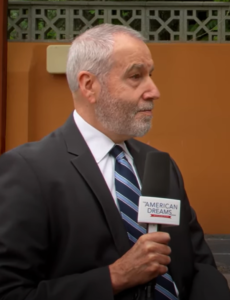Top Tips for Charitable Giving Under New Tax Law

Top Tips for Charitable Giving Under New Tax Law
One of the best ways to save on taxes, no matter which earnings class you’re in, is to donate money to charity. This has been a long-standing way to not only do good, but to also lower your tax bill. However, thanks to the Tax Cut and Jobs Act, things have changed. Charitable giving is not the same as it used to be.
No More Itemizin
For starters, most people who donate to charities will no longer receive a tax benefit. That’s because in order to count those donations you have to itemize. You could still itemize, but because the standard deduction has nearly doubled this year, itemizing won’t make sense for most taxpayers.
Still Beneficial to Wealthy Donors
However, if you make significant donations, then you could still reap the tax deduction benefits. But in most cases, this will apply to wealthy individuals who have more to give. Giving to a good cause is still a noble thing to do, but if you did it for the tax break, then that benefit is likely a thing of the past.
There Are Still Benefits for Donating
But not all hope is lost. There are still ways to reap some benefits from giving to charity. Here’s why. Charitable giving has many forms. Yes, most people simply write a check and give it to an organization. But there are other ways to add charitable giving to your financial plan, including your estate planning. It takes some shifting of sorts, but many of the typical charitable giving approaches can still be used for personal benefits.
Contingency Beneficiary
One option is to name a charity, or charities, as a contingency beneficiary. This money might not end up going to charity, but it can be a nice tax deduction. For example, if you have a beneficiary that might not live long enough to receive his or her inheritance, then you could bequeath the money that would have gone to him or her to a charity, in the event your beneficiary dies before you do.
Give to Charity After You Both Die
Most married couples give everything to the other spouse when the first one dies. This way, your spouse is protected until he or she passes away. If you don’t have any children or beneficiaries, you could bequeath your assets to charity upon the death of the second spouse. This can save you on estate taxes when the first spouse dies and more money goes to the charity when the second spouse dies.
Give a Remainder Interest in Your Home
You can receive a charitable contribution deduction by donating interest in your home or farm that only applies in the future. You get to claim an income tax deduction while you’re alive without setting up a trust. That means you can donate your home or property to charity but you still get to live in it for the rest of your life. But keep in mind that the gift of your home has to be irrevocable.
It’s Still Good to Give
While the Tax Cut and Jobs Act has changed things for charitable donations, there are still ways you can give and save on your taxes. Plus, it’s always nice to give to good cause.
We hope you found this article about “Top Tips for Charitable Giving Under New Tax Law” helpful. If you have questions or need expert tax or family office advice that’s refreshingly objective (we never sell investments), please contact us or visit our Family office page or our website at www.GROCO.com. Unfortunately, we no longer give advice to other tax professionals gratis.
To receive our free newsletter, contact us here.
Subscribe to our YouTube Channel for more updates.

Alan Olsen, is the Host of the American Dreams Show and the Managing Partner of GROCO.com. GROCO is a premier family office and tax advisory firm located in the San Francisco Bay area serving clients all over the world.
Alan L. Olsen, CPA, Wikipedia Bio

GROCO.com is a proud sponsor of The American Dreams Show.

The American Dreams show was the brainchild of Alan Olsen, CPA, MBA. It was originally created to fill a specific need; often inexperienced entrepreneurs lacked basic information about raising capital and how to successfully start a business.
Alan sincerely wanted to respond to the many requests from aspiring entrepreneurs asking for the information and introductions they needed. But he had to find a way to help in which his venture capital clients and friends would not mind.
The American Dreams show became the solution, first as a radio show and now with YouTube videos as well. Always respectful of interview guest’s time, he’s able to give access to individuals information and inspiration previously inaccessible to the first-time entrepreneurs who need it most.
They can listen to venture capitalists and successful business people explain first-hand, how they got to where they are, how to start a company, how to overcome challenges, how they see the future evolving, opportunities, work-life balance and so much more..
American Dreams discusses many topics from some of the world’s most successful individuals about their secrets to life’s success. Topics from guest have included:
Creating purpose in life / Building a foundation for their life / Solving problems / Finding fulfillment through philanthropy and service / Becoming self-reliant / Enhancing effective leadership / Balancing family and work…

MyPaths.com (Also sponsored by GROCO) provides free access to content and world-class entrepreneurs, influencers and thought leaders’ personal success stories. To help you find your path in life to true, sustainable success & happiness. It’s mission statement:
In an increasingly complex and difficult world, we hope to help you find your personal path in life and build a strong foundation by learning how others found success and happiness. True and sustainable success and happiness are different for each one of us but possible, often despite significant challenges.
Our mission at MyPaths.com is to provide resources and firsthand accounts of how others found their paths in life, so you can do the same.
Allen Miner – SunBridge Group
Interview transcript of Allen Miner, SunBridge, by Alan Olsen, Host of the American Dreams Show: Alan Olsen: Welcome back and visiting here today with Allen Miner. He’s the CEO and founder of the Sunbridge group. Welcome to today’s show. Allen Miner: Great to be here. Alan Olsen: So Alan for the listeners, can you…
2X Wealth Group: Investment Management Catered to Women | Lori Zager
“2X Wealth Group: Investment Management Catered to Women”, Lori Zager Transcript, Interview by Alan Olsen, Host of The American Dreams Show: Alan Olsen: Welcome back. I’m here today with Lori Zager. She is the co founder of the 2X Wealth Group which is a subsidiary of Ingalls & Snyder. Lori, welcome to today’s show. …
John Hoffmire
Transcript of John Hoffmire: Alan Olsen: One of the areas that you’ve been involved with is impact investing, what is impact investing? John Hoffmire: Well, impact investing can be defined as a number of different ways. I’m going to define it in the broadest possible way, where investments of almost all types make an…
Add These Leadership Skills for 2021
As we begin to exit the pandemic, are you looking to grow or enhance your leadership skills this year? If so, it is vital to have a plan as no one can expect to become a better leader just by showing up every day. Here are some important things to focus on in 2021. These leadership…




